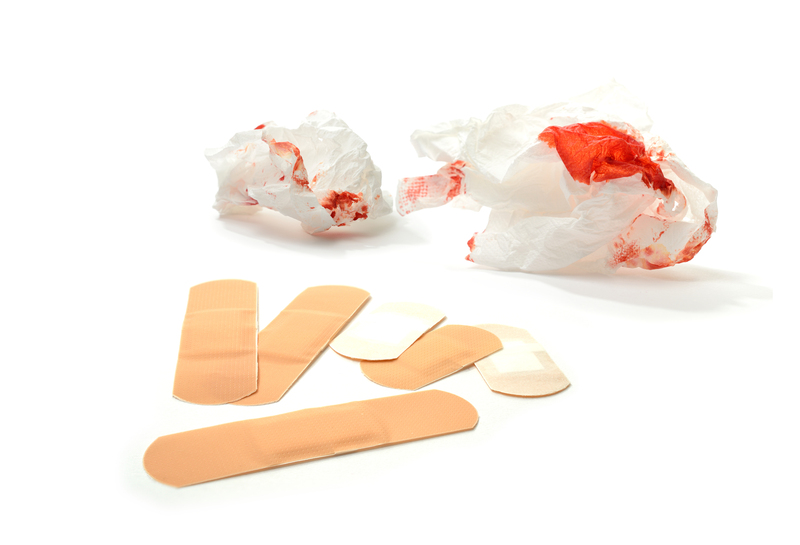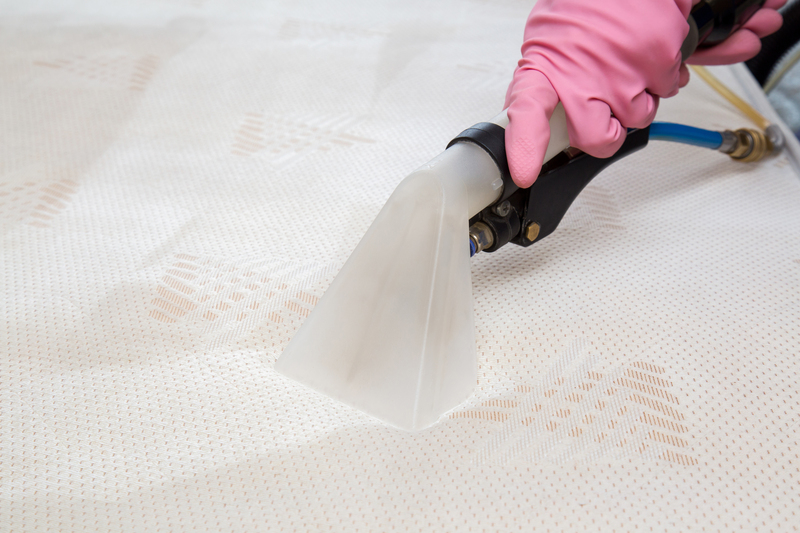The Hidden Dangers Lurking in Your Carpet: Common Health Risks Associated with Dirty Carpets
Posted on 24/07/2024

When it comes to keeping our homes clean and healthy, we often focus on the visible surfaces such as countertops, floors, and furniture. However, one area that often gets neglected is our carpets. While they may seem harmless and just in need of a quick vacuuming every now and then, carpets can actually harbor a variety of hidden dangers. From allergens to bacteria, the build-up of dirt and grime in our carpets can pose serious health risks if left unchecked. In this article, we will explore the common health risks associated with dirty carpets and provide tips on how to keep your carpets clean for a healthier home.
Allergies and Respiratory Issues
One of the biggest dangers of having a dirty carpet is the potential for allergens to accumulate. Dust mites, pet dander, pollen, and other particles can easily get trapped in the fibers of your carpet, especially if it is not regularly cleaned. These allergens can then be released into the air as people walk over the carpet or as it is disturbed by activities such as vacuuming or playing on it. This can cause allergic reactions in those who are sensitive to these allergens, leading to symptoms such as sneezing, coughing, watery eyes, and even asthma attacks.
In addition to allergens, dirty carpets can also harbor mold and mildew. If there is excess moisture in your home or if you have had any spills or leaks on your carpet that were not properly cleaned up, mold and mildew can start growing in your carpet. Breathing in mold spores can trigger respiratory issues such as coughing, wheezing, and difficulty breathing.
Bacteria and Germs
Carpets are also hotspots for bacteria and germs. Any food or drink spills that are not promptly cleaned up can become breeding grounds for bacteria. Additionally, if you have pets that use your carpet as their bathroom spot or if anyone in your household accidentally tracks in dirt from outside, these can all introduce bacteria and germs into your carpet. These microbes can then thrive and spread, increasing the risk of illnesses such as stomach bugs, respiratory infections, and even skin irritations.
Chemical Exposure
In order to keep carpets looking clean and fresh, many people turn to chemical cleaners. While these products may effectively remove stains and odors, they can also leave behind harmful residues. When we walk on the carpet or sit on it, we can come into contact with these chemicals which can then be absorbed through our skin or inhaled. Prolonged exposure to these chemicals has been linked to a range of health issues including headaches, dizziness, and even neurological problems.
Tips for Keeping Your Carpets Clean
Now that we have highlighted some of the potential health risks associated with dirty carpets, here are some tips on how to keep them clean and safe for your family:
1. Vacuum Regularly: The first step in maintaining a clean carpet is to vacuum it at least once a week. This will help remove surface dirt and debris before it has a chance to settle deep into the fibers of the carpet.
2. Invest in a Good Quality Vacuum Cleaner: A high-quality vacuum cleaner with strong suction power is essential for keeping your carpets clean. Look for one with HEPA filters to effectively trap allergens and other particles.
3. Spot Clean Spills Immediately: Make sure to clean up any spills as soon as they happen to prevent them from staining or causing mold growth.
4. Deep Clean Twice a Year: In addition to regular vacuuming, it is important to deep clean your carpets at least twice a year. You can hire a professional carpet cleaning service or rent a steam cleaner to effectively remove stubborn dirt, stains, and allergens.
5. Use Natural Cleaning Products: Avoid using harsh chemicals on your carpets by opting for natural cleaning solutions such as vinegar, baking soda, and essential oils. These are not only safer for your health but also for the environment.
The Pros and Cons of Carpeted Floors
While carpets may add warmth and comfort to our homes, they do have their pros and cons when it comes to health and hygiene. Here are some of the main factors to consider:
Pros:
- Provides insulation and soundproofing
- Soft and comfortable underfoot
- Can be a budget-friendly flooring option
- Helps to trap dust and allergens, preventing them from being circulated in the air
Cons:
- Traps dirt, allergens, and bacteria if not properly cleaned
- Can be difficult to maintain, especially in high traffic areas
- May harbor mold and mildew if not adequately dried after spills or leaks
- Requires regular deep cleaning to keep it hygienic
Key Takeaways
While carpets can pose potential health risks, they can also bring many benefits if maintained properly. Regular vacuuming, prompt cleaning of spills, deep cleaning twice a year, and opting for natural cleaning products can help minimize these risks. Additionally, keeping your home well-ventilated can help prevent the build-up of allergens and bacteria. Consider investing in a good quality vacuum cleaner with HEPA filters for better air quality in your home.
In conclusion, it is important to pay attention to the cleanliness of your carpets in order to avoid potential health hazards. Regular maintenance and proper cleaning techniques can go a long way in keeping your carpets clean and safe for you and your family. By taking these measures, you can enjoy the cozy comfort of carpeted floors without compromising on your health.





